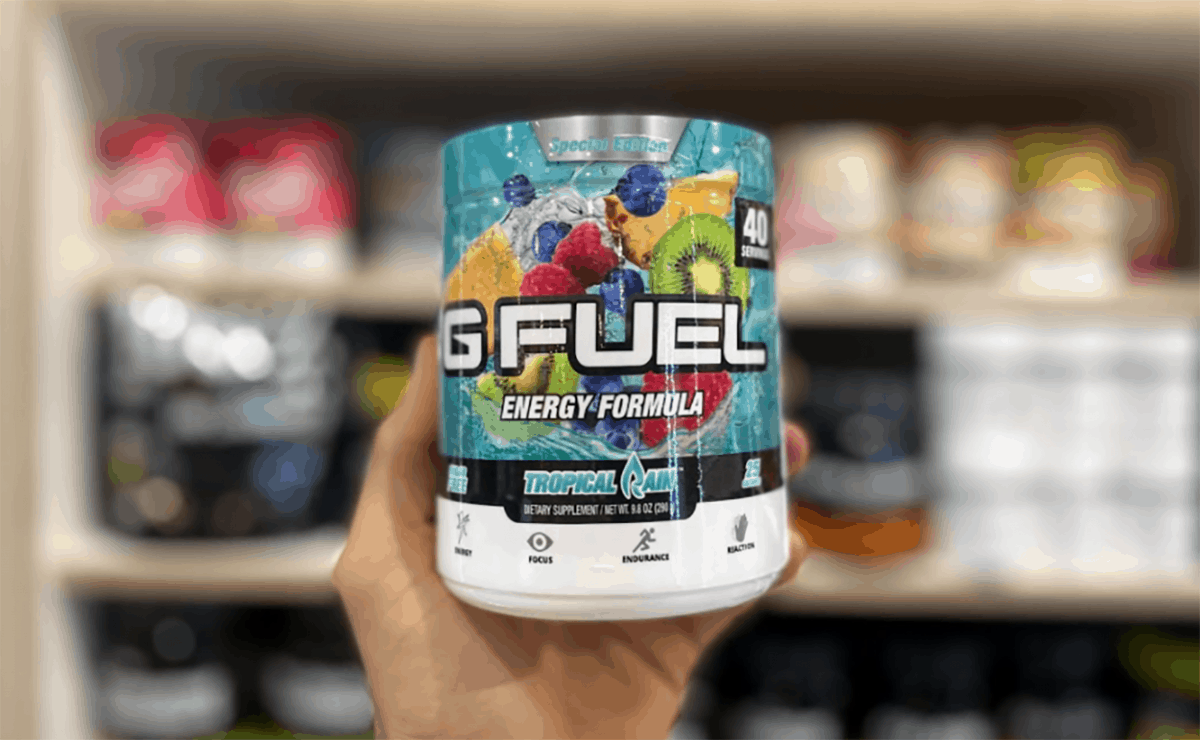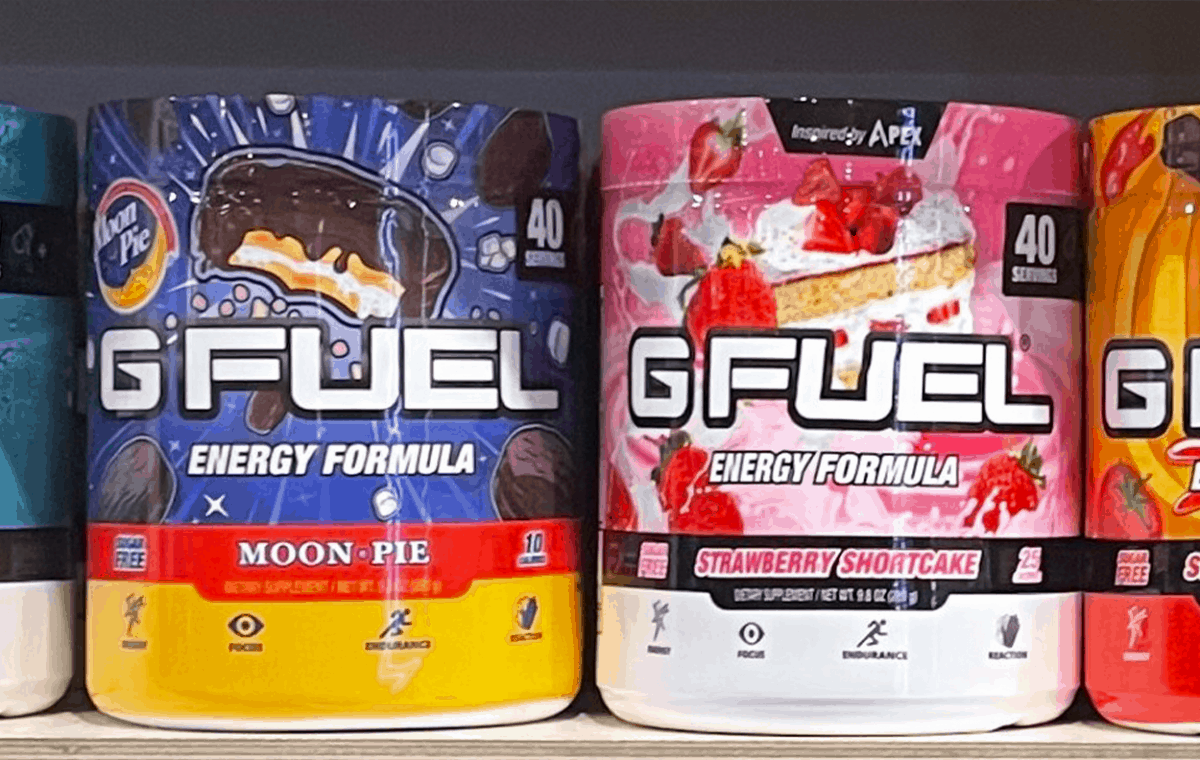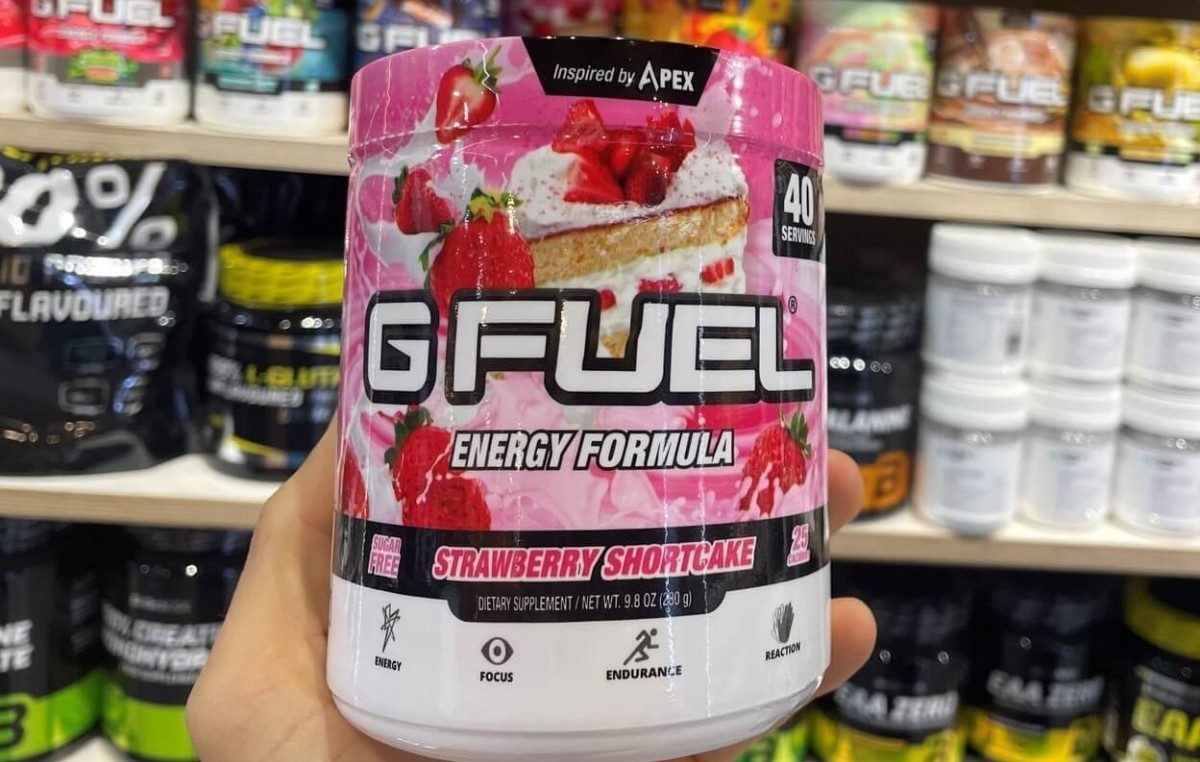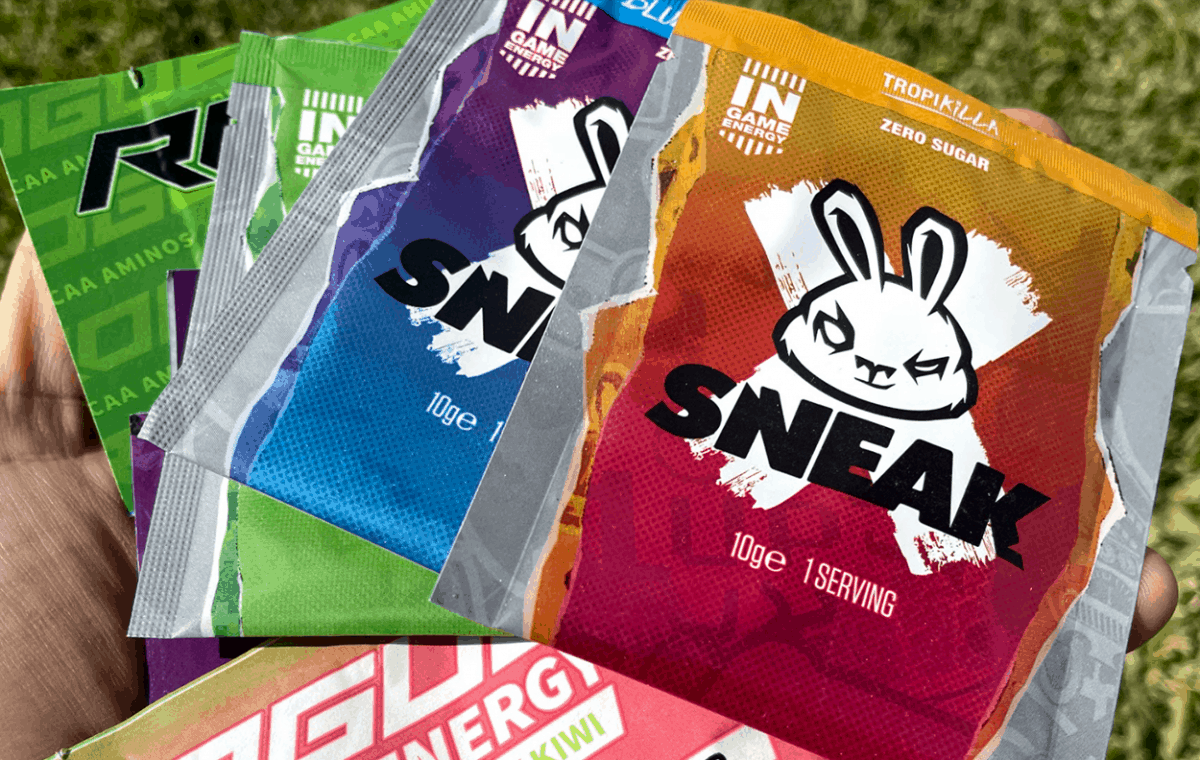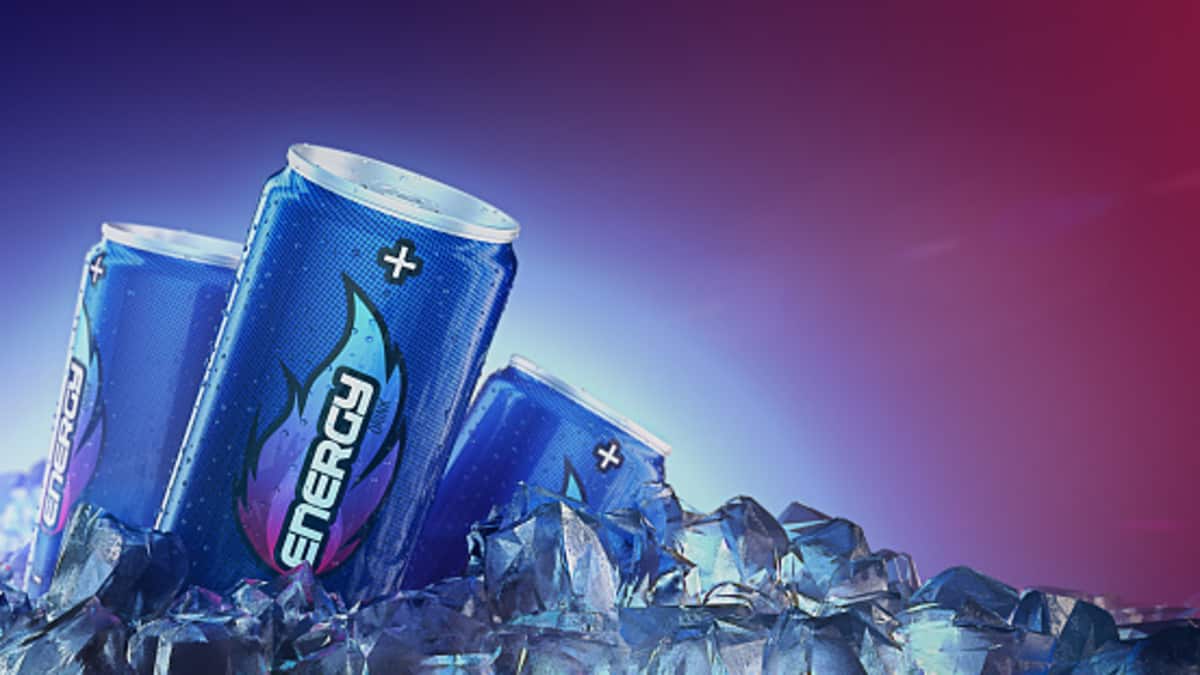
Can Energy Drink Powders Cause Addiction? (The truth)
Quick Answer: Yes, energy drink powders can cause addiction!
Energy drinks are a part of our everyday life. They are at every bus stop, gas station, and supermarket aisle.
The trend of sports has also increased the popularity of gaming energy drinks, especially in the world of virtual games. But do you wonder what effects do they have on our bodies?
In this article, we’ll decipher why energy drink powders are addictive and what’s in them that makes them addicting. Let’s get to it!
Gaming energy powders contain ingredients that may cause psychological addiction. The addiction might not be as strong as the addiction to cocaine or heroin, but this addiction can be more appropriately be termed dependency.
Let’s take a closer look at the most common ingredients of energy powder drinks that tend to cause addiction or dependency.
Contents
What is an Addiction?
Addiction is a condition of neuropsychology. When you are addicted to a substance, it’s nearly impossible to withdraw from it.
This addiction is mostly characterized by the use of harmful drugs which have serious consequences. As you continue to use drugs, the function of the brain changes and it begins to act differently than usual.
Moreover, a person finds it difficult to control these cravings and starts losing self-control; the true addiction can be extremely harmful and lethal to a person.
Energy Drink Addiction
Energy drink addiction is not actually a term, however, it can be understood as a psychological desire to consume an excessive amount of energy drinks.
Some of the early signs of energy drink addiction are:
- strong cravings
- inability to control intake
- mental images of energy drinks
Like drug addiction, energy drink addiction can have a negative impact on your health when consumed regularly in the long term.
Energy drinks contain sugar, caffeine, carbs, and other ingredients that can potentially endanger your health. These primary components of energy drinks can cause certain diseases such as high blood pressure, weight gain, disturbed sleep pattern, and worst case, neurological issues.
Energy drink addiction is not completely similar to drug addiction but they share a few characteristics such as mood changes, headaches, nausea, fatigue, anxiety, depression, and other symptoms.
Energy drinks, in no doubt, are not a healthy drink option to consume on a daily basis. However, if you really feel like drinking, it is perfectly safe as long as it’s within a limit.
Ingredients of Energy Drinks (What’s in energy drink powders that makes them addictive?)
Caffeine and sugar are the main components of energy drink powders that make them addictive.
Before going deep, you should know that the caffeine limit per day is 400 mg as recommended by the US FDA. As for sugar intake, men shouldn’t consume more than 36 g of sugar per day, and women at 25 g per day as recommended by the AHA.
Let’s look at these two main components of energy drink powders – caffeine and sugar!
Caffeine
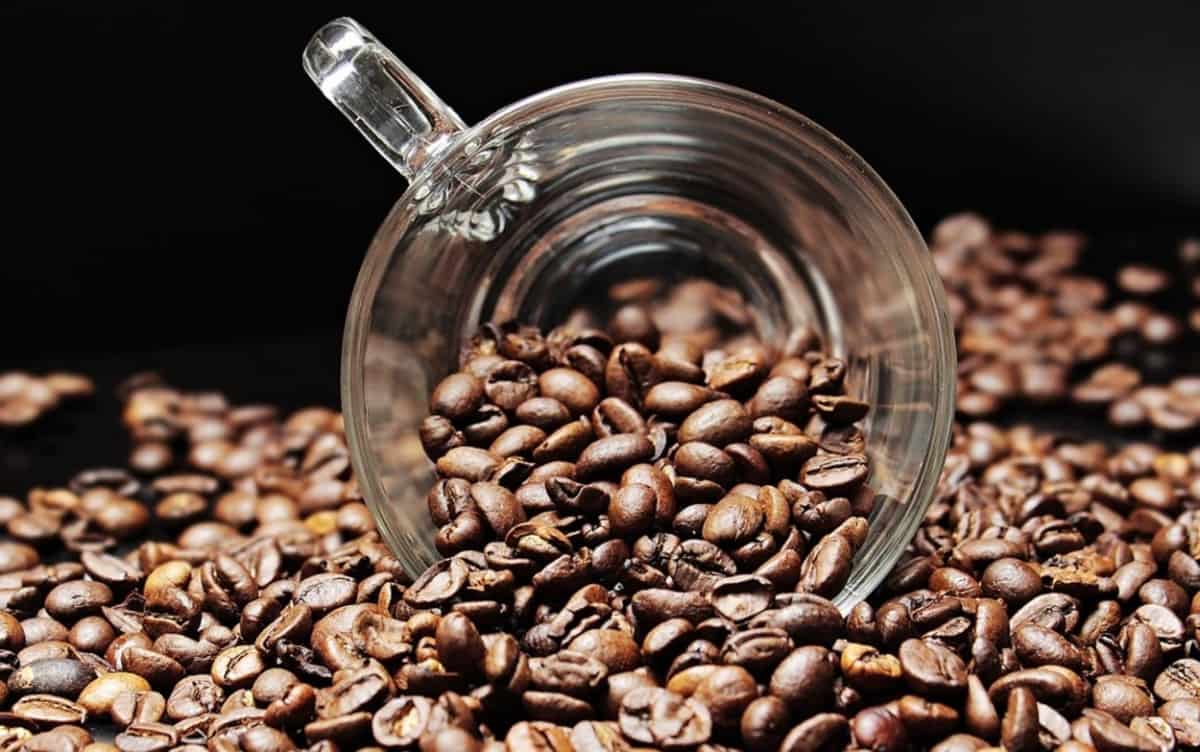
Caffeine belongs to the methylxanthine class and is classed as a stimulant.
The caffeine in energy drinks makes you more active and alert than usual and it also causes a sensation of excitement in the body.
It blocks the adenosine receptor, a chemical compound that is responsible for making you drowsy, sleepy, and tired after a whole tiring day. For that reason, you feel more energized and alert after consuming energy drinks.
The more you stay awake and the more you work, the more adenosine is built up inside the brain. However, when you consume caffeine, the structurally similar molecules of caffeine attach themselves to the receptors adenosine. This causes you to become alert and active.
This amazing mechanism of caffeine has turned it into the most consumed psychoactive drug all around the world.
Moving forward, let’s look at the benefits and side effects of caffeine!
Caffeine Benefits
- increased energy levels
- heightened alertness
- reduces fatigue
- boosts memory
- improves mood
- reduces the risk of developing certain diseases
Caffeine Side Effects
- insomnia
- headaches
- anxiety
- dehydration
- increased heart rate
- sleep problems
Sugar
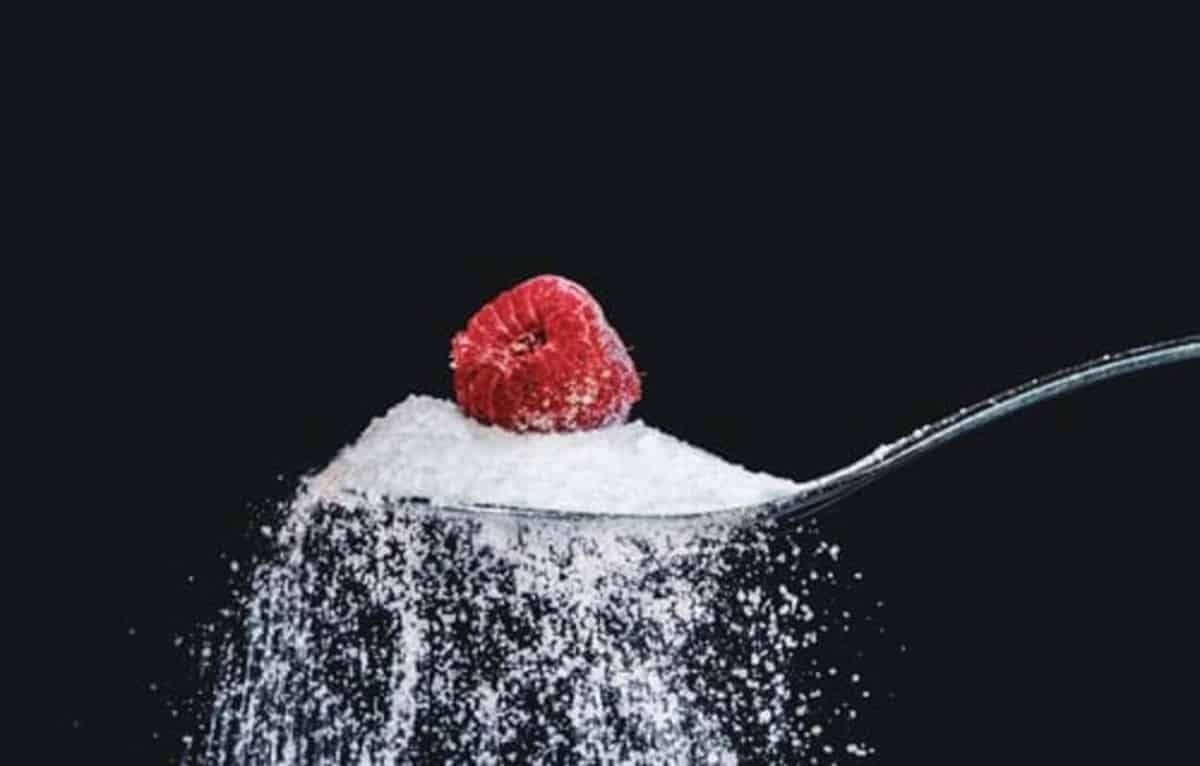
Sugar is another main energy drink component that can make you feel addicted. It gives you a sudden boost of energy and a positive mood which prompts you to want sugary food and drinks.
Sugar cravings are normal. The brain sees sugar as a reward. You’ll keep wanting more of this reward which becomes a tough habit to break.
Sugar triggers dopamine release. When you eat sugar, the brain surges a significant amount of dopamine which is a similar effect when you ingest cocaine and heroin.
Many people opt for sugar-free energy powder drinks to cut sugar intake and minimize health problems.
Artificial sweeteners are used in energy drinks to replace regular sugar which may leave you craving more sugar as some studies suggest. It makes it harder for you to control your weight and it won’t help you break the habit of needing more sugar in your food and drinks.
Speaking of weight gain and sugar-free energy drink powders, I have elucidated the topic in this article. Check it out!
How Many Energy Drinks Does it Take To Get Addicted?
We’re clear that energy drink powders are addictive. Unfortunately, caffeine and sugar are the main culprits of this form of addiction.
In my opinion, there’s really no fixed number as to how many energy drinks does it take to get addicted. We all have different tolerance levels and going past your body’s limit is definitely a key factor to energy drink addiction, in general.
Besides, anything too much is always bad. The same goes for consuming too many energy drinks which can cause addiction and other health problems.
The best advice for you to take is to limit your energy drink intake to one serving per day and to only consume it if you really need it. Of course, a healthy lifestyle along with regular exercise are good habits to acquire too!
Can Energy Drinks Cause Withdrawal Symptoms?

Energy drinks cause withdrawal symptoms!
When you become dependent on energy drinks and you suddenly want to go cold turkey, chances are you’re going to suffer from the following withdrawal symptoms:
- headaches
- irritability
- depressed mood
- fatigue
- difficulty concentrating
These symptoms are the keys to why it’s a challenge for you to quit drinking energy drinks. They manifest when you are unable to access energy drinks or if you’ve gone cold turkey. These conditions may last 2 to 9 days.
If you feel like you’re struggling to manage your symptoms, it is best to seek medical help right away.
This video further explains the side effects of energy drinks. Watch it!
Are Energy Drinks More Addictive than Coffee?
In general, energy drinks can be more addictive than coffee but it depends on the energy drink and how you take your coffee.
A regular serving of powdered energy drinks and a cup of regular coffee usually have a similar amount of caffeine. In terms of caffeine quality, I’ll side on coffee!
In my view, I’d say energy drinks are more addictive than coffee due to their sugar and caffeine content which you can’t control on every serving. As with coffee, you can pretty much control the amount of addons that you want on your cup which puts you on the lower spectrum of addiction.
Even though coffee is less addictive, you shouldn’t overindulge. Make sure to use high-quality beans and learn the best way to make a perfect cup!
Bottomline
Energy drink powders can cause addiction!
Mainly, it is the sugar and caffeine that makes them addictive in nature. Unfortunately, there is no way of eliminating these components because energy drinks are all about them!
With that said, moderation is the key to preventing energy drink powder addiction!
Additionally, if you’re in the process of quitting energy drinks, it’s normal to suffer from withdrawal symptoms for a week or so. Don’t let it discourage you.
Focus on your goal, instead! Once you’re fully recovered, you’ll have a clean bill of health for as long as you keep up with your good healthy habits.




